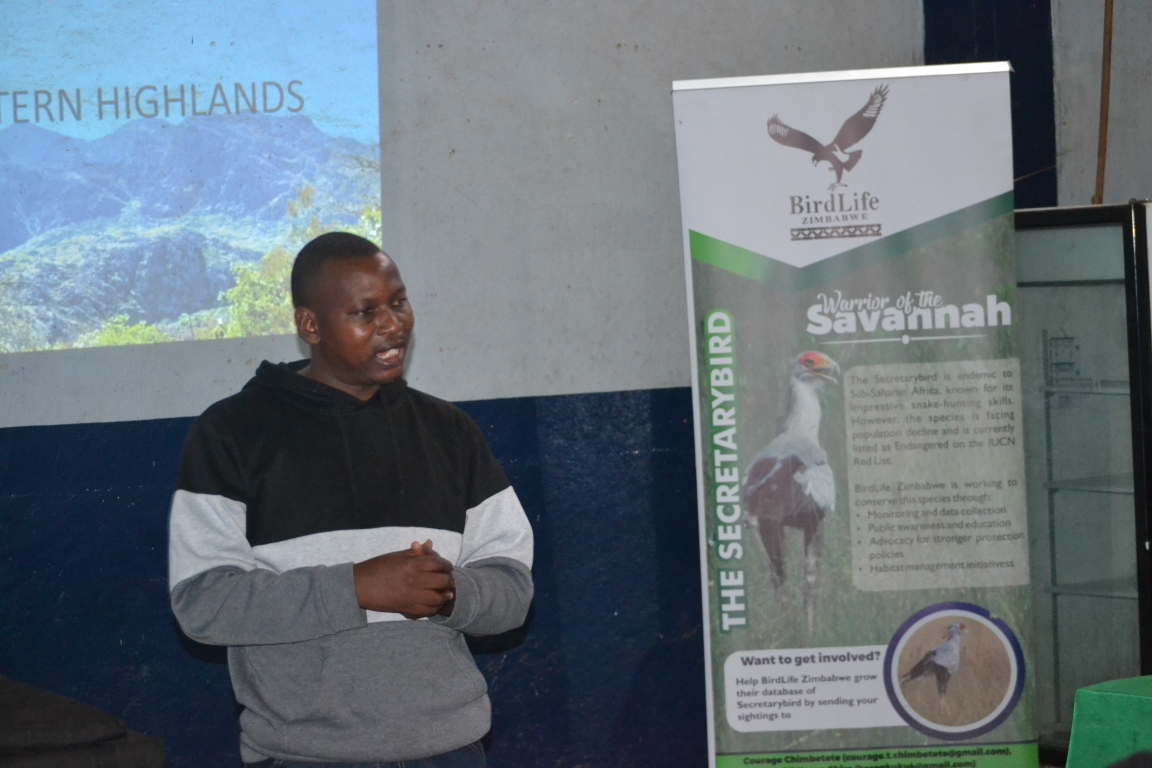By Fanuel Chinowaita
Mutare, Zimbabwe – May 21, 2025
A landmark conservation workshop held in Mutare on May 16 has raised alarm over the rapid decline of key bird species in Zimbabwe’s Eastern Highlands.
The event that was Organized by the Manica Youth Assembly (MAYA) and Nature Conservation and Development Trust (NCDT) brought together conservationists, researchers, and local communities to explore solutions centered on habitat protection, community monitoring, and sustainable tourism.
Shingirai Sakarombe of BirdLife Zimbabwe presented a sobering assessment of the endangered Blue Swallow (Hirundo atrocaerulea), a migratory species reliant on Afromontane grasslands. Satellite data revealed that nearly 70% of the Blue Swallow’s global habitat has disappeared since 2001 due to livestock farming, invasive species, and pesticide use.
Sakarombe emphasized that Zimbabwe’s Eastern Highlands, which host critical nesting sites in aardvark holes and sinkholes, are among the species’ last refuges. “Without urgent action, we risk losing this species within a decade,” he warned, urging communities to adopt wetland-friendly farming practices.
Courage Chimbetete, also from BirdLife Zimbabwe, turned attention to the Secretary Bird, another iconic grassland species now classified as endangered. Its population decline reflects broader ecosystem degradation in the Manica Important Bird Area (IBA), where agriculture and climate change have fragmented natural habitats.
Chimbetete cited citizen science programs in Puerto Rico’s Cabo Rojo National Wildlife Refuge as a model for Zimbabwe. “Local custodians are our eyes on the ground,” he said, announcing plans to train local communities in bird population monitoring.
The workshop also spotlighted eco-tourism as a sustainable path forward. With Nyanga National Park and the Bvumba Mountains already attracting birdwatchers, participants proposed expanding tourism to fund grassland restoration.
NCDT showcased current efforts to rehabilitate degraded areas, drawing parallels with Maya Bay in Thailand, where seasonal closures led to the recovery of coral reefs and shark populations. “Sustainable tourism isn’t just ethical; it’s economically vital,” said an NCDT representative.
The workshop concluded with a collective pledge to reconvene in six months to draft a regional conservation blueprint. “This isn’t just about birds,” Sakarombe stated. “It’s about preserving the ecological fabric that sustains us all.”

